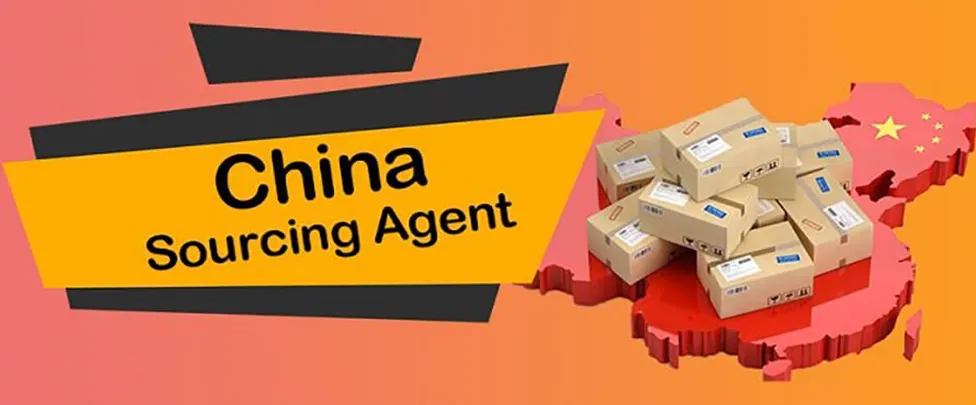How to Find a Sourcing Agent in China: A Practical Guide

Let's be honest. You're not just looking for *a* purchasing agent in China. You're looking for a good one. Maybe a great one.
You've heard the horror stories: disappearing suppliers, quality that falls off a cliff, and communication that goes silent. A good agent is your shield against all that. But finding one? It feels like a gamble.
This guide is different. We're not just giving you a list of names. We're giving you a proven, step-by-step system to find, vet, and hire a partner you can trust. We'll even cover the stuff most guides ignore, like how to find an agent who actually knows about ESG and won't just find you the cheapest factory.
Let's get started.

Before you start looking, know why you're looking.
You probably need an agent if you:
Are new to importing from China and feel overwhelmed.
Don't have a team on the ground for factory visits and quality checks.
Are dealing with complex products (electronics, machinery) where quality control is critical.
Want to streamline communication across time zones and language barriers.
Are serious about sustainable and ethical sourcing and need a partner to enforce it.
You might be okay going direct if you:
Are ordering very large volumes and have your own quality control team.
Are sourcing simple, commoditized products.
Have deep experience in Chinese business culture and logistics.
Assuming you're in the first group, here's how to find your agent.
Forget just Googling "China sourcing agent." That's what everyone else does. You need to be smarter.
Websites like Sourcify or Thomasnetoften have vetted supplier directories. These aren't the wild west of Alibaba. The agents listed here often have profiles that detail their specialties and compliance standards. It's a great starting point for a qualified longlist.
This is a goldmine. Agents go where the factories are. Look for major shows like the Canton Fair or industry-specific events. Even their online versions now have exhibitor lists. You can see which agents are present, check their websites, and even set up introductory calls. An agent who specializes in your industry (e.g., textiles vs. electronics) is worth their weight in gold.

LinkedIn is your best friend here. Use search terms like:
"China sourcing agent [Your Industry]"
"Procurement specialist China"
"Hardware sourcing Shenzhen"
Look for individuals with detailed profiles, recommendations, and who post content about their work. This shows professionalism and expertise. Don't just send a connection request; send a personalized message.
This is still the #1 way to find a reliable partner. Ask your business network. Post in industry-specific forums or LinkedIn groups. A personal recommendation from a trusted contact cuts through 90% of the vetting process.
Agents who invest in creating valuable content (like detailed guides, YouTube videos, or webinars) are often the ones who know their stuff. If you find a blog with deep, practical advice (like this one!), that company is demonstrating its expertise upfront. This is a huge trust signal.
This is the most important part. Finding names is easy. Knowing who to trust is hard. Follow this framework.

Website & Professionalism: Does their website look professional? Is it clear what they do and who they serve? A sloppy site often means sloppy service.
Specificity: Do they say they "source everything," or do they have a clear focus (e.g., "we specialize in custom metal fabrication")? Specialists are almost always better than generalists.
Transparency: Are they upfront about their fee structure? If it's vague, that's a red flag.
Once you have a shortlist of 3-5 agents, it's time for a video call. Here are the questions you must ask:
About Their Business & Process:
"Can you walk me through your step-by-step process, from receiving my inquiry to shipping the product?"
"What is your exact fee structure? Are there any hidden costs I should know about?" (Listen for transparency. Common models are a percentage of order value or a fixed service fee.)
"Where is your team physically located?" (Having a team in mainland China is crucial for factory visits.)
About Quality & Risk:
4. "What is your specific quality control process? Can you share a sample QC report?" (If they can't, run.)
5. "How do you handle production delays or quality issues with a factory? Can you give me a real example?"
About ESG & Sustainability (The Game-Changer Questions):
Most agents will blank on these. The good ones will have answers.
6. "What is your process for verifying a factory's social and environmental compliance?"
7. "Are you familiar with audit standards like SMETA, BSCI, or SA8000? Have you arranged them for clients?"
8. "How do you ensure the factories you work with adhere to basic labor rights and safety standards?"
Pro Tip: Ask them to screen-share and show you a real (anonymized) QC report or supplier audit. This separates the talkers from the doers.
Let's talk about money. This is where a lot of confusion and suspicion comes in. Being transparent here will build more trust than anything else.

First, you need to know how the good guys operate. There are two main models:
The Percentage Commission Model: This is the most common. The agent charges a percentage of your total Purchase Order (PO) value, typically between 5% and 10%. Why the range? It depends on your product's complexity, your order volume, and how much work is involved. A simple, high-volume item might be at the lower end. A complex, custom-designed product with multiple prototypes will be at the higher end.
The Pro Tip: Always ask if their commission is based on the FOB (Freight On Board) value. This is standard and fair, as it doesn't include the international shipping cost you pay separately.
The Fixed Service Fee Model: This is becoming more popular, especially for project-based work or ongoing management. The agent charges a fixed fee for a defined set of services—like supplier identification, factory audits, and quality inspections.
Why this is great: It completely aligns your agent's interests with yours. They aren't tempted to inflate the factory's price to get a bigger commission. Their goal is efficiency and getting you the best price and quality, because their fee is the same either way.
Watch Out for The "Hidden" Costs (And The Real Red Flags)
A professional agent is transparent about all costs. Here’s what to ask:
"Does your service fee include things like local communication and factory visit travel costs?" (The best ones say yes).
"Who pays for samples and sample shipping?" (This is often on the client, but it should be clear upfront).
Now, the big one: Factory Kickbacks. This is the dirty secret of bad agents. They find you the cheapest factory, but then take a secret commission from the factory owner. This means their goal is not to get you the best quality; it's to get you to place the order with their factory, no matter what.
How to avoid this? Work with agents who are upfront about their fee structure with you. A transparent agent who charges you a fair commission or fee has no reason to play these games. Their loyalty is to you.
Hiring your agent is just the beginning. Treat them as a partner.
Set Clear KPIs (Key Performance Indicators): Agree on metrics from day one.
On-Time Delivery Rate: Target >95%.
First Pass Yield (FPY): The percentage of units that pass QC the first time. Target >98%.
Critical Defect Rate: Target 0%.
Communication Rhythm: Schedule a weekly standing call. Use a shared platform (like Slack or Trello) for daily updates and issues.
Build the Relationship: Be clear, respectful, and pay on time. This is a partnership, not just a transaction.
Theory is nice, but real-world stories stick. Let's look at how this plays out for two different companies trying to make the same product: a custom-designed backpack.

Company A: Hired the "Cheap" Agent
The Process: The agent found a factory with a rock-bottom price. They skipped the detailed pre-production sample, saying it would "slow things down." Their "quality check" was a few photos from the factory floor when the order was almost finished.
The Catastrophe: When the shipment arrived, the company found:
The fabric was a thinner, cheaper grade than specified.
The zippers were jamming constantly.
The custom-branded logos were the wrong color and already peeling off.
The Result: A total loss of their $50,000 investment. They missed their crucial holiday sales season and spent months dealing with angry customers and refunds. The "cheap" agent cost them everything.
Company B: Hired a Professional, Transparent Agent
The Process: The agent presented three pre-vetted factories with proven backpack experience, including their audit reports. They insisted on and managed two rounds of pre-production samples until everything was perfect. During production, they conducted a rigorous AQL inspection, discovering that the stitch density was inconsistent.
The "Problem": The agent halted shipment and demanded the factory re-stitch the entire batch. This caused a one-week shipping delay.
The Result: The company received a perfect-quality product. That one-week delay saved them from a brand-destroying product recall and millions in potential lost future sales. Their agent wasn't just an order-placer; they were a risk management system.
The lesson isn't that Agent B was more expensive. It's that Agent B's service was invaluable.
You've found a great agent. Now, let's make sure the practicalities of working together are safe and smooth.
1. Getting Your Goods Home: The Logistics Hand-Off
Your agent should be your expert guide on the ground, but you should maintain control. The best practice is a "hand-off" model:
Your agent finds the factory, manages quality, and prepares all the export documentation from China.
You (the client) work with your own freight forwarder or one they recommend to handle the international shipping and customs clearance in your country.
Why this works: It creates a system of checks and balances. Your agent focuses on production, and your freight forwarder focuses on logistics. It also prevents any potential markup on shipping costs.
2. Keeping Your Money Safe: Payment Structures
This is non-negotiable. Never, ever give your full payment for goods to your agent to pass along to the factory. The risk is too high.
Here are the two secure ways to pay:
Direct TT (Telegraphic Transfer) to the Factory: This is the most common. Your agent negotiates the price, but you send the payment directly to the factory's bank account. The agent then shows you their invoice for their service fee separately.
Escrow Services or Letters of Credit (LC): For larger orders or new relationships, these provide more security. An Escrow service holds your money until you confirm the goods are correct. An LC guarantees payment from your bank to the factory's bank once shipping documents are presented.
A professional agent will insist on these secure methods. It protects you both.
3. Dotting the I's and Crossing the T's: The Legal Agreement
Don't start with just a handshake. Have a clear Sourcing Service Agreement. This isn't about distrust; it's about professional clarity.
Your agreement should cover:
Scope of Work: Exactly what services are (and are not) included.
Fee Structure: The exact percentage or fixed fee, payment terms, and what expenses are covered.
Confidentiality & IP Protection: Legally binding them to protect your designs and information.
Liability and Dispute Resolution: What happens if things go wrong? Many agreements specify a neutral arbitration venue (like Hong Kong).
Taking these final steps separates a professional, long-term partnership from a risky transaction. It shows you know what you're doing and ensures your journey to finding a great agent ends in success, not a headache.
Finding a great purchasing agent in China isn't about magic. It's about a systematic approach. You need to know where to look, how to ask the hard questions, and how to spot a true partner versus just a middleman.
The market is shifting. The best agents today aren't just finders of cheap products; they are managers of your supply chain risk and enforcers of your ethical standards. By using this guide, you're not just finding an agent. You're building a competitive advantage.
Ready to find a partner who can do all this? Let's talk. Our team was built to be an extension of your own, with expertise in everything from hardgoods sourcing to rigorous ESG compliance.
A: Absolutely. It's a common myth that you need huge volumes. Look for agents who offer a "project-based" or "hourly consulting" fee structure instead of a pure percentage. This way, you can pay for specific services, like a single factory audit or sample validation, without committing to full-scale management. Be upfront about your budget and growth plans; the right agent will see your potential.
A: When they promise you the moon. If an agent guarantees they can slash your current costs by 50% overnight without knowing the details, be very skeptical. A professional agent will be optimistic but realistic. They'll talk about process, risk management, and due diligence first, not just unbelievable cost savings. Overpromising is the fastest way to underdeliver.
A: This is a classic "agent rescue" scenario. A good agent will be willing to step in. The key is transparency. You must be ready to introduce the agent to your factory and clearly define their new supervisory role. Be aware that some factories might resist this, as they prefer the direct (and less monitored) relationship. A professional agent knows how to navigate this diplomatically.
A: It's a trade-off. The big firms have vast resources and processes, but you might be a small fish in a big pond. A smaller, specialized agent often provides more personalized service and senior-level attention. Think of it like this: do you need a full-service hospital, or a brilliant specialist clinic? For niche products, the specialist almost always wins.
A: You can, but you shouldn't assume they're an expert in all of them. An agent brilliant at sourcing textiles might not have a clue about machining metal parts. The best approach is to ask them: "This is my product category. Is this within your core expertise? If not, do you have a trusted partner you can refer me to?" Honesty here is everything.
A: Look for the "Liability" and "Inspection Dispute" clauses. It should state that if your own quality controller finds defects that the agent missed, the agent is obligated to halt shipment and work with the factory to rectify the issue at no additional cost to you. It shouldn't make them liable for the factory's mistakes, but it must make them responsible for their own inspection failures.
A: Implement a "Golden Sample" protocol. This is the one perfect sample that you, the factory, and the agent all sign and keep. Every pre-production and production sample is then compared against this Golden Sample. Any deviation requires a formal change order. This eliminates "he said, she said" arguments about color, feel, or function.
A: This is a key strategic question. It's often better to let the final assembly factory source sub-components. They get better bulk pricing and manage the logistics. However, for a critical, high-value component, you might want your agent to source it directly from a specialist and have it delivered to the assembly factory. This gives you more control and cost visibility on the most important part.
A: Micromanaging. You hired an expert, so let them expert. Don't try to call the factory directly or second-guess every decision. Establish a clear communication protocol (e.g., one weekly update call, use a shared project management tool) and then trust the process. Constant interference slows everything down and undermines your agent's authority with the factory.
A: Ask about their process for unannounced audits. A factory expecting a visit will always be on its best behavior. The best agents have local staff who can drop in unexpectedly to check on working conditions, waste management, and payroll records. This is the true test of a factory's commitment.
A: Protect yourself with a strong NDA (Non-Disclosure Agreement) and Non-Circumvention Agreement. This legally prevents them from sharing your designs, supplier list, or pricing with any other party. While you can't control everything, a reputable agent values their reputation and long-term relationship with you more than a quick side deal.
A: Your contract should have a "Termination Clause." A fair one typically requires a 30-day written notice and outlines the process for handing over all supplier contacts, project files, and documentation. You should pay for all services rendered up to the termination date. A clean, professional break is important—you may need to work with them again in the future.
Contact us
Call Us: +86 193 7668 8822
Email:[email protected]
Add: Building B, No.2, He Er Er Road, Dawangshan Community, Shajing Street, Bao'an District, Shenzhen, China